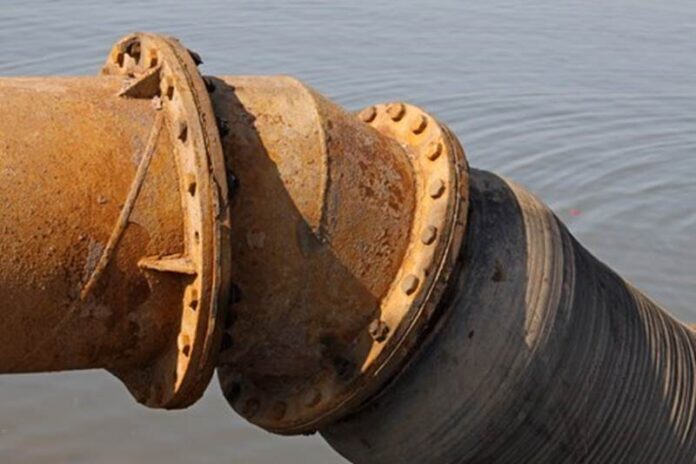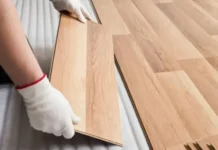Pipe corrosion is a concern for many homeowners. Corroded pipes can lead to having to replace an entire plumbing system. An understanding of what causes pipe corrosion and how to prevent it is important to maintaining the health of the plumbing system in your home. If you are dealing with possible corrosion in your pipes, you should have an inspection done or repairs made before the problem worsens. If you find yourself dealing with pipes that have burst due to corrosion, you can contact AHWA for help.
What Causes Pipes to Corrode?
Older pipes are obviously more subject to pipe corrosion than newer systems but pipes installed as recently as two years ago can also exhibit corrosion under the right circumstances. There are several reasons for this, such as the chemical properties of your local water supply. Even the most pristine water can have corrosive qualities that affect pipes. Likewise, harsh drain cleaners can do significant damage, creating the right conditions for corrosion. Some common causes of corrosion to pipes are:
Low pH Water
When discussing the pH balance of water, a number is assigned to represent the water’s acidity. This number ranges from zero to 14. Water with a pH of zero is mostly acidic. The less acidic the water, the higher the number assigned. Fourteen represents mostly alkaline water, with a pH of 7 considered neutral.
If the water supplied to your home has a pH higher than 7, it will foster a copper oxide barrier inside your pipes that helps to slow or reduce corrosion. Water with a neutral pH of 7 or lower will not form this barrier or, in the case where pH has decreased since it formed, will dissolve it. This greatly increases the speed at which corrosion can form. Eventually, the pipes will begin to exhibit tiny holes that will continue to corrode.
Air and Water
Water entering your plumbing has had air dissolved into it. Oxygen will corrode metal through the process of oxidation, a process in which metal is converted to rust. Once this happens, the rusted metal will get weaker, causing three things:
- Rust will form in your pipes. The rough surface of the rust will grab hold of water impurities and create buildup that affects the quality of your water supply.
- Your pipes will continue to grow thinner, leading to splits and leaks.
- Tiny cracks will form. Any pressure on the pipes from the house settling, the Earth shifting, or anything else can cause breakage.
This corrosion process is sped up further when you bring hot water into the mix. So, your hot water lines are far more susceptible than cold water pipes.
High Water Velocity
A closed-loop plumbing system can experience what is called “erosion corrosion.” This happens when large volumes of water are speeding through pipes ill-equipped to handle the velocity because they were poorly soldered. The water wears down the soldering and the pipes, eventually leaving breakage in its wake.
Harsh Drain Cleaners
Chemical-based drain cleaners are designed to burn out whatever may be stuck in your pipes. They can also burn holes in your pipes themselves. Enzymatic and natural drain cleaners are a much better choice.
Pitting Corrosion
Copper pipes can experience pitting corrosion under the right conditions. If this is caught before leaks form, it can be corrected before the problem becomes worse. There are three kinds of pitting corrosion:
- Type 1: This kind of pitting corrosion normally occurs when a water supply has a pH balance somewhere in the range of 7 to 7.8. It can lead to pinhole leaks or breakage.
- Type 2: This kind of pitting corrosion happens in hot water lines with a temperature above 140 degrees Fahrenheit and a water supply with a pH lower than 7.2. Because this is confined to the hot water portion of your plumbing system, it is limited in how much damage can be incurred.
- Type 3: This kind of pitting corrosion takes place when the water supply registers a pH balance above 8.0. You may not see any breakage but you will see the effects on your water, which may have a blue tint, carry particles from internal pitting, or experience blockages from a buildup caused by corrosion.
Galvanized Steel Pipes
Copper piping wasn’t always the choice for homeowners when it came to their plumbing systems. Up until the 1960s, galvanized steel pipes were commonly used in many homes. You may still find some galvanized steel pipes in older homes or locations like wells. These pipes had a coating of zinc to slow corrosion but as time passed, it was shown that the pipes weren’t as effective against corrosion as thought and they were no longer considered a good choice. Among the problems they exhibited were the following:
- Substantial deposits due to a reaction to minerals in the water
- A reaction called electrolysis that happens when galvanized pipes are connected to other metal piping such as copper or brass fittings. This causes corrosion in the galvanized pipes
- Corrosion from the effects of hard water
Few homes still have galvanized pipes. If you believe that you might still have it in your home, you should have a plumbing inspection completed to prevent unexpected ruptures.
Signs of Corrosion
There are usually signs of corrosion before you experience any actual breakage, but not always. The best way to prevent corrosion and leaks is to have your plumbing inspected regularly. When buying a new home, be certain a full plumbing inspection has been done and review it for any concerns. If you are already in your home or have been for some time, it is a good idea to have a plumbing inspection done every one to two years.
If you experience any of the following, you should contact a plumbing expert to repair the issues and assess whether you need further work done to prevent a recurrence.
- Brown or discolored water
- Low water pressure
- Evidence of leaks in walls, ceilings, or floors where plumbing lines are located
- Sounds of running water outside normal household use
- Knocking or clanging of pipes
Any of these can be an indication that you have corrosion in your pipes or that conditions exist that can lead to corrosion if not properly addressed.
Read Also : What Do Public Utilities Jobs Pay? Find Out



































































